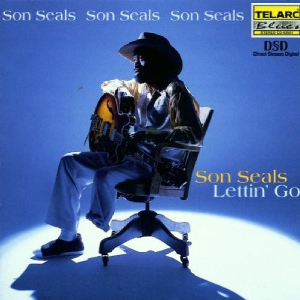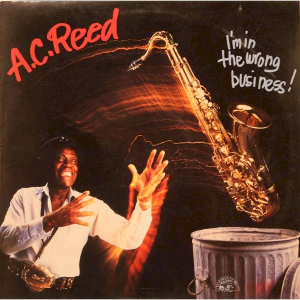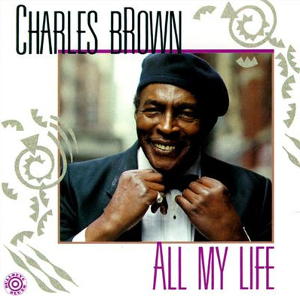
Big Fun is an album by American jazz trumpeter Miles Davis. It was released by Columbia Records on April 19, 1974, and compiled recordings Davis had made in sessions between 1969 and 1972. It was advertised as a new album with "four new Miles Davis compositions" One of three Davis albums released in 1974 and largely ignored, it was reissued on August 1, 2000, by Columbia and Legacy Records with additional material, which led to a critical reevaluation.

James "Super Chikan" Johnson is an American blues musician based in Clarksdale, Mississippi. He is the nephew of fellow blues musician Big Jack Johnson.

Haircut is the ninth studio album by American rock band George Thorogood and the Destroyers, released on July 27, 1993. The first single from the album was "Get a Haircut". The album peaked at No. 120 on the Billboard 200. The band supported the album with a North American tour.

Lettin' Go is the final studio album by Son Seals, released in 2000. It was his only album for Telarc.

If You Miss 'Im...I Got 'Im is an album by blues musician John Lee Hooker with his cousin Earl Hooker released by the BluesWay label in 1970.

Rhythm and Business is an album by the American band Tower of Power. It was released in 1997. The band promoted the album by playing the Red Sea Jazz Festival, among other concert dates.

I'm in the Wrong Business! is an album by the American musician A.C. Reed, released in 1987. Backed by the Spark Plugs, Reed promoted the album with a North American tour. It sold around 50,000 copies in its first two years of release.

Bang That Bell is an album by the American musician Melvin Taylor, released in 2000. He is credited with the Slack Band. Taylor supported the album with a North American tour.

Dirty Pool is an album by the American musician Melvin Taylor, released in 1997. He is credited with his Slack Band. Dirty Pool was Taylor's second album for Evidence Music.

All My Life is an album by the American musician Charles Brown, released in 1990. It was Brown's first album for Bullseye Blues, and part of a comeback effort that began with his previous release, One More for the Road. Brown supported the album with a North American tour.

Across the Water is an album by the American musician Bernard Allison, released in 2000. Allison supported the album with a North American tour. It was Allison's second album to be released in the United States.

Back to the Country is an album by the American musician Johnny Shines, released in 1991. He was accompanied by the harmonica player Snooky Pryor. It was Shines's final studio album. Back to the Country won a W. C. Handy Award for country blues album of the year.

Spend Some Time with Me is an album by the American musician Mem Shannon, released in 1999. It was his first album for Shanachie Records. Shannon supported the album with a North American tour.

Harlem Blues is the debut album by the American musical duo Satan and Adam, released in 1991. The liner notes penned by Adam relay the history of the pair. The duo supported the album with a European tour. Harlem Blues was nominated for a W. C. Handy Award for "Traditional Blues Album of the Year".

That's When I Know is an album by the American musician Eddie C. Campbell, released in 1994. It marked Campbell's return to the United States after spending more than a decade in Europe. Campbell supported the album with a North American tour. The title track was nominated for a W. C. Handy Award.

Payin' for My Sins is an album by the American musician Grady Champion, released in 1999. It was his first album for Shanachie Records. Champion supported the album with a North American tour.

How'd a White Boy Get the Blues? is an album by the American musician Popa Chubby, released in 2001. It was his first album for Blind Pig Records. Popa Chubby supported the album with a North American tour. The title track was a minor hit in Europe.

Tales from the Austin Motel is an album by the American musician Debbie Davies, released in 1999. Davies supported the album with a North American tour.

Ramblin' Mind is an album by the American musician Big Bill Morganfield, released in 2001. Morganfield supported the album with a North American tour.

Kant Sheck Dees Bluze is an album by the American musician Jimmy Dawkins, released in 1992. It was his first studio album for an American record label in a decade. He supported it with a North American tour.




















